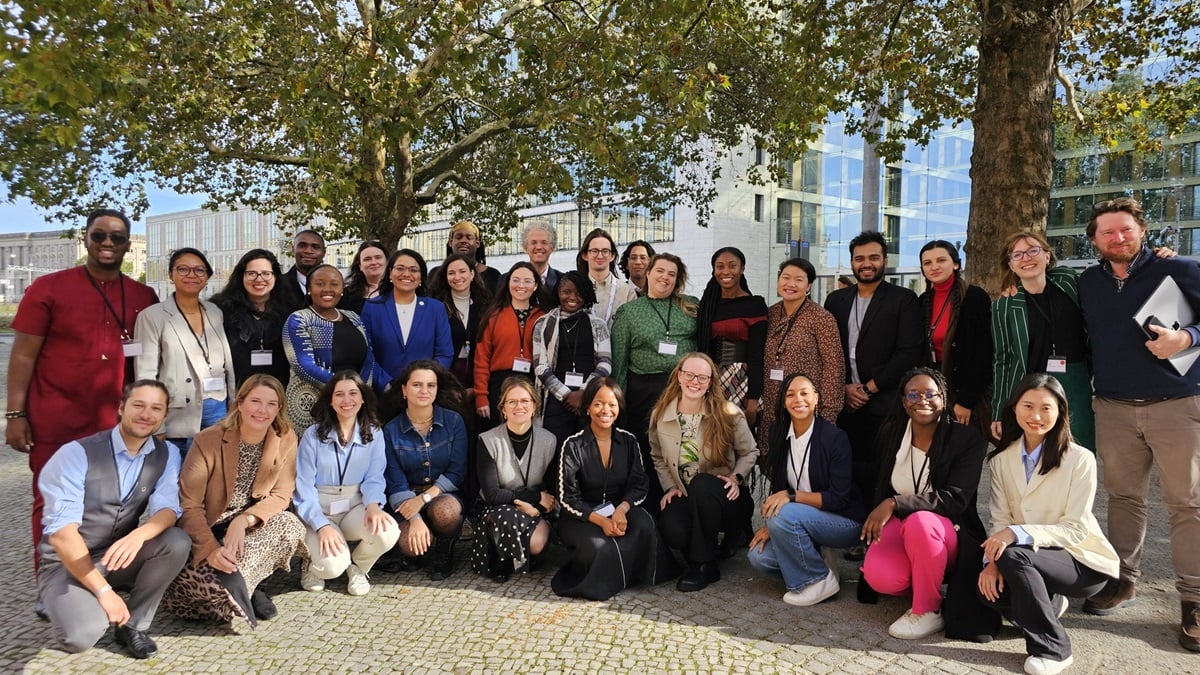The WHO Youth Council has issued its first Youth Declaration on Building Healthy Societies, which includes a series of calls to action drawn up by young people from around the world and aimed at empowering youth. to play a vital role in creating healthier and safer societies for all its members.
“The WHO Youth Council is honored to publish its first Youth Declaration on Building Healthy Societies,” said Kate Ndocko, member of the WHO Youth Council. “This Declaration symbolizes our collective commitment and shows our priorities to help communities, and in particular young people, locally, regionally and globally, become healthier and more resilient in the face of the many health challenges we face. those that the world faces today, as well as those that are to come.
The Declaration was presented today, during the World Health Summit being held in Berlin. The text contains ten calls to action that give young people a central role in jointly building healthier societies globally, and explains what is needed to bring this initiative to fruition. Calls to action ensure:
- Access, equity and inclusion of young people in education, eliminating barriers and aiming to reflect the different health care needs of people and communities.
- Comprehensive national curricula in the areas of health, climate change and digital literacy.
- A quality and adapted education, articulated through flexible and responsive learning environments.
- The participation and leadership of young people in the formulation and implementation of health policies and programs.
- Inclusive, accessible and prevention-focused healthcare, particularly for young people from marginalized and vulnerable groups.
- Investing in young people to empower them to become leaders and drive solutions in health, climate change and education.
- Creating brave spaces for healthy environments to protect young people from social and institutional barriers and keep them safe from violence, harassment and other harmful practices.
- Inclusion of young people by governments, international organizations and civil society to participate in policy formulation on priority health needs.
- Consideration of the experiences of young people, particularly their diversity and opinions, in the formulation and implementation of health policies.
- Greater support for grassroots youth organizations as a means to invest in future generations.
“WHO is committed to amplifying the voices of young people to realize our shared vision of health for all,” said Dr Tedros Adhanom Ghebreyesus, Director-General of WHO. “The Youth Declaration on Building Healthy Societies, by the WHO Youth Council, does just that: transforming the ideas, advice and action of young people into a powerful call for change, and showing what “It can be achieved when youth are actively involved in defining their health and future.”
Rehman Hassan, member of the WHO Youth Council representing the Act4Food campaign of the Global Alliance for Better Nutrition, said: “We can no longer afford to ignore the perspective, skills and energy of young people if we want to. transform our communities, policies and the planet in general. Pandemics and epidemics, conflicts, the spread of misinformation and the health risk posed by climate change, among other issues, threaten the health and well-being of billions of people. Young people are the least represented group in the sphere of governance, despite the fact that half of the world’s population is under 30 years of age. The time has come to involve them and incorporate their solutions to achieve a healthier future. “The Youth Council and its member organizations, in collaboration with WHO, are committed to charting this healthier path forward, for the present and the future.”
The WHO Youth Council was established in 2023 and is a dynamic network that aims to amplify the voice and experiences of young people and harness their knowledge, energy and ideas to promote public health. The Youth Council is made up of youth representatives from organizations and movements in the health field and other fields. He advises and actively works with the Director-General and senior management of WHO to ensure that health policies and programs reflect the knowledge, innovation and needs of young people around the world. The WHO Youth Council is also a platform to conceive and incubate new initiatives, as well as to expand existing youth engagement initiatives at WHO.
Notes for editors
The following organizations are part of the WHO Youth Council: Act4Food, a campaign of the Global Alliance for Improved Nutrition; Africa Public Health Students Network Initiative (AfricaPHSN); Climate Cardinals; Commonwealth Youth Health Network (CYHN) – Commonwealth Secretariat; Digital Transformations for Health Lab (DTH-Lab); European Network of Resident Doctors in Public Health (EuroNet MRPH); Grassroot Soccer; Healthy Caribbean/Healthy Caribbean Youth Coalition; Innovation for Health Equity in Africa; International Federation of Medical Students Associations (IFMSA); International Pharmaceutical Students’ Federation (IPSF); International Student One Health Alliance (ISOHA); International Student Surgical Network (InciSioN); International Youth Alliance for Family Planning; International Youth Health Organization; Orygen; The International LGBTQI Youth & Student Organization (IGLYO); United Nations Major Group on Children and Youth (MGCY); Universities Allied for Essential Medicines (UAEM); World Medical Association Young Doctors Network (WMA JDN); World Organization of the Scout Movement (WOSM); Young Professionals Chronic Disease Network; Young Professionals in Foreign Policy (YPFP); Youth Alliance (a branch of the Healthy America Coalition -CLAS-); and Youth and Environment Europe.
During the Berlin event, the WHO Youth Council held a major three-day event, facilitated and supported by Bertelsmann Stiftung, to generate ideas for collaboration, action and future work. During the meetings, the new members of the Council, coming from different bodies, were announced.
Bertelsmann Stiftung is committed to ensuring that everyone can participate, whether politically, economically or culturally, in society. He works in the fields of education, democracy, Europe, health, values and the economy. In its work, it gives a central role to people, since they are the ones who can promote, transform and turn the world into a better place. To do this, we take advantage of knowledge, develop skills and promote solutions. Reinhard Mohn founded Bertelsmann Stiftung in 1977.
